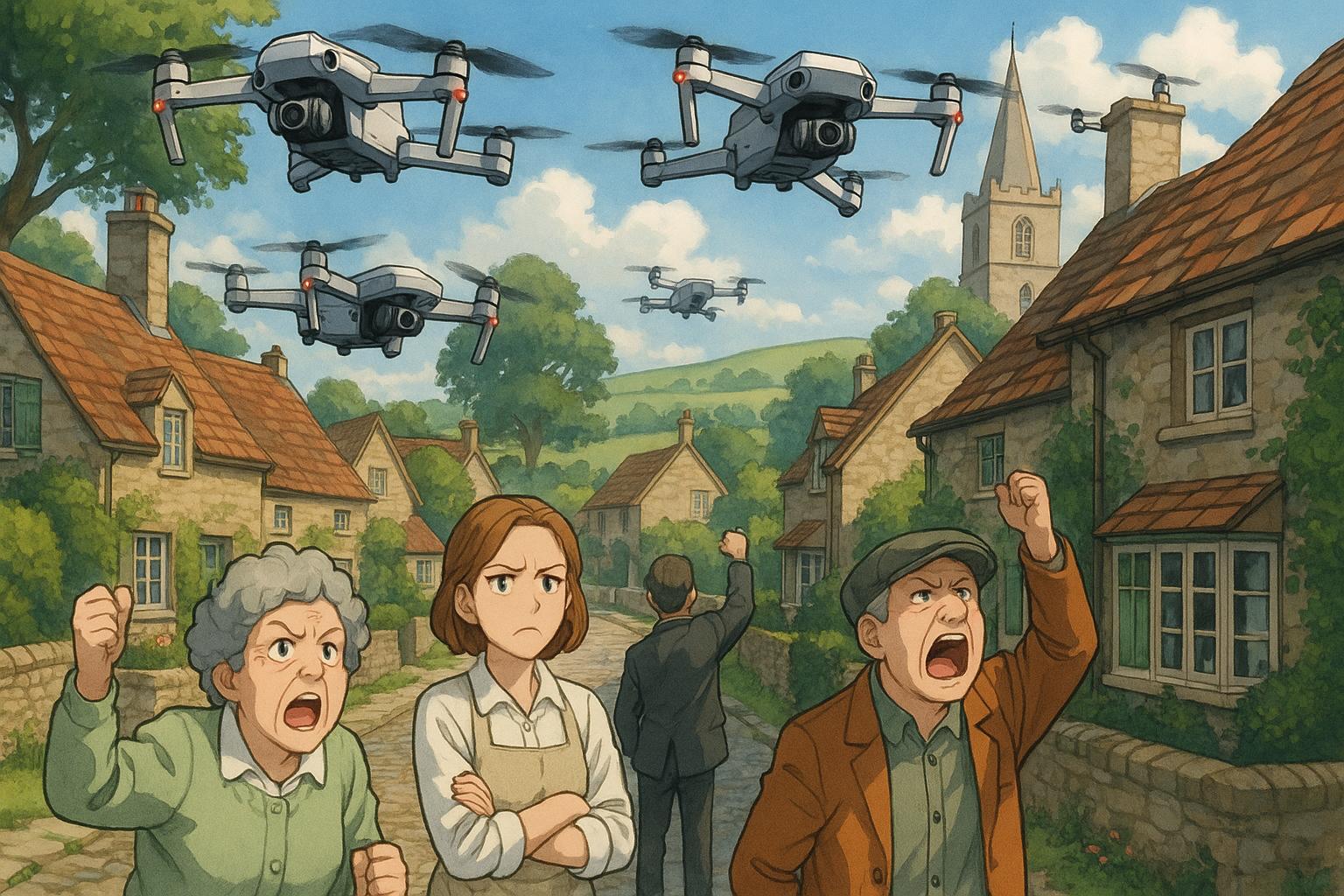Enraged residents of Castle Combe, often heralded as the UK's most beautiful village, are grappling with an unexpected nuisance: the proliferation of drones operated by tourists seeking to capture aerial views of the picturesque countryside. Nestled in Wiltshire, the quaint village is not only known for its scenic charm but also for being a celebrity filming location, attracting thousands of visitors annually. However, this influx of drone-flying tourists has sparked significant unrest among the local population, who claim their privacy and peace are increasingly under siege.
Residents report that the tranquillity of their community is shattered as drones hover over homes and public spaces, taking advantage of the village's stunning landscapes. The issue has escalated markedly since the pandemic, as more people have taken to capturing their experiences through aerial photography. Former district councillor Nick Botterill has voiced his concerns, noting the risks posed by low-flying drones in busy areas. "It's got to the stage where it's no longer just the odd thing," he commented. Many locals agree that while the intention may be innocent, the reality feels invasive and disrespectful of their private lives.
In response to these grievances, Castle Combe Parish Council has implemented signage throughout the village to deter drone usage. However, despite these measures, the complaints continue to mount. Frederick Peter Winup, the council chairman, highlighted the community's heightened concerns over safety, recounting incidents where drones have disrupted daily life and even prompted police intervention. In one alarming case, footage reportedly captured children at play in their gardens, necessitating police action. Winup's assertions reflect a growing sentiment among residents that the pleasures of rural living are overshadowed by disruptive tourism activities.
The increasing number of holiday homes and Airbnbs in the village has also contributed to feelings of disenfranchisement among locals. Many long-term residents have watched as their community becomes “hollowed out” due to rising property prices and the influx of transient visitors. Georgina Kingshott, a post-doctoral scientist who moved to Castle Combe for a quieter life, reflects on this bittersweet transformation, stating that the charm she sought has been eclipsed by the unchecked wave of tourism. “In the hotter months, people pitch up like it is the beach,” she lamented, expressing frustration with the constant presence of tourists, especially those flying drones.
Local authorities are now caught in a delicate balancing act, tasked with managing the charms of tourism while safeguarding the integrity of village life. Recent efforts by Wiltshire Council include measures to enhance visitor management, like traffic control systems and social media campaigns advising visitors during peak times. Yet, the overarching issue remains: how to ensure that tourism does not render Castle Combe unrecognisable as a place of residence. Botterill argues that first-time visitors often do not understand the implications of their actions, mistaking the village for a theme park rather than a living community.
As residents grow increasingly vocal about their desire for an idyllic lifestyle, the call for stricter regulations surrounding drone usage looms larger. The Civil Aviation Authority stipulates laws governing drone flight; however, locals feel that enforcement is lacking. Perhaps this mirrors a broader theme across many beloved tourist destinations in the UK—demanding that visitors respect the unique landscapes and communities they wish to explore.
Ultimately, the voices from Castle Combe serve as a poignant reminder of the oft-unseen consequences of over-tourism. While the village's natural beauty will continue to attract visitors, it remains crucial for both tourists and authorities to instil a sense of mutual respect and understanding that preserves the integrity of local life.
Reference Map:
- Paragraph 1 – [1], [2]
- Paragraph 2 – [1], [3], [4]
- Paragraph 3 – [5], [6], [7]
- Paragraph 4 – [2], [5], [6]
- Paragraph 5 – [3], [4], [6]
- Paragraph 6 – [1], [4], [6]
Source: Noah Wire Services
